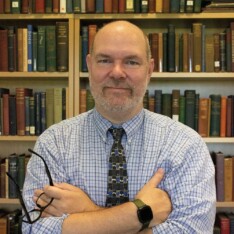How to Recognize the Fascistic Turn
In an interview on the venerable CBS news program 60 Minutes two weeks ago, freshman Representative (and Twitter sensation) Alexandria Ocasio-Cortez (D-NY) was asked a wide range of questions about her personal views, her political priorities, and other topics. Inevitably, the issue of her recent spate of misstatements — some of which appear to be flubs, others undoubtedly attempting to mislead — arose, to which she responded: “I think there’s a lot of people more concerned about being precisely, factually and semantically correct than about being morally right.”
Unsurprisingly, Ocasio-Cortez’s comment was viewed positively by her supporters (an affirmation of her good intentions, if perhaps revealing her still-novice state in Washington) but derided by her detractors as an excuse for a combination of mendacity and clumsiness — a franchise that previously seemed the exclusive domain of the current president. For the most part, partisan views governed both the reception of and response to her comment, which was within a few days forgotten, a new range of issues — the partial government shutdown, taxing billionaires, and so on — taking the forefront.
Ocasio-Cortez and the incoming class of congressmen want to be taken seriously, and in particular, they want their ideas to be taken seriously. It is for this reason that a comment that explicitly elevates sentiment and action over fact and reason must be taken with the utmost seriousness, especially when voiced by a proponent of radical economic and social overhaul. The idea that “rightness” and emotional fervor trump substance has a distinct and deeply troubling past that deserves much closer examination.
The first task of any radical movement is to discredit established knowledge — academic, experimental, experiential — as either utterly incorrect, partially true, or most commonly a tool of control. Hard-won, often-difficult truths are decried as provisional. Reason itself is dismissed as insufficient and erroneous.
In common, Nietzsche and Heidegger expounded the notion that because the pillars of Western accomplishment — the social, economic, and political blooming of the Enlightenment — were essentially dead weight, action and will are superior to truth. The deconstructionist and postmodern philosophers have continued the philosophy that truth is, in Nietzsche’s words, “a movable host of metaphors, metonymies, and anthropomorphisms.”
Common among the Italian Fascisti, the Russian Bolsheviks, the German Brownshirts and later National Socialists, the Sixties radicals, every Third World “agrarian reformer,” the failed Occupy Wall Street movement, and this new wave of bright-eyed collectivists, as evinced by Ocasio-Cortez’s comment, is the tenet that passion and spirit are more important than truth. Hitler spoke of the “cult of the deed”; Mussolini endlessly touted the idea that “to live is not to calculate, but to act!” Sixties ‘revolutionaries’ shouted, “Tactics? It’s too late — let’s break what we can.”
Meaning — “rightness” — is thus created by power, a power not exerted by superior command of facts and the accumulation of experience, but by action. Proponents of all of these views are animated by a philosophy that says, in essence: “We may be wrong, but we believe we are pure.” Power, not truth, is the overriding concern.
(It bears mentioning that this posture ties to the irrepressible instinct of radical movements to assail individuals as impotent, instead lobbying for mass action, whether in the form of “community organizers,” Sturmabteilung squads, units of Blackshirts, cells of Weathermen, or the timeless focus of political activists for time immemorial: “the People”.)
The “lot of people” who are, as Ocasio-Cortez put it, more concerned with factual correctness than moral rightness are those who politicians should and do fear; they temper and defang political zealotry. There is more than enough proof, historically, that regardless of political orientation, individuals sufficiently compelled by idealism to promote the discard of reason have only one direction in which to go, whether they intend to or not: destruction.
In explicitly promoting conviction and righteousness at the expense of factualness and actuality, Ocasio-Cortez and her ilk are — in pursuit of socialistic ends — doing so beneath the philosophical mantle of fascism.











